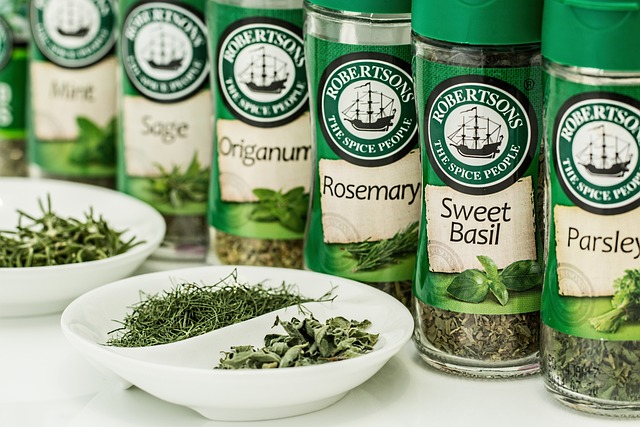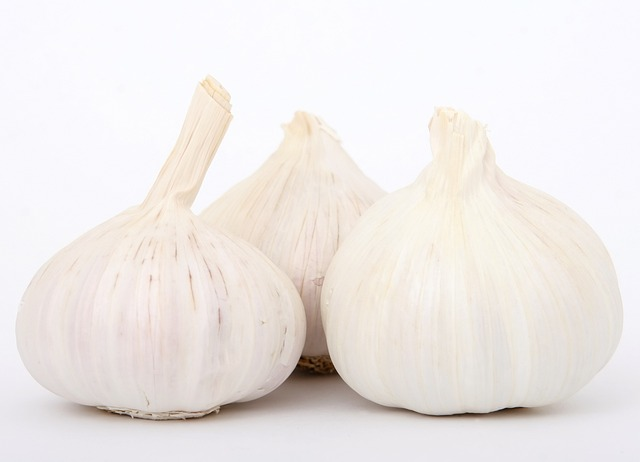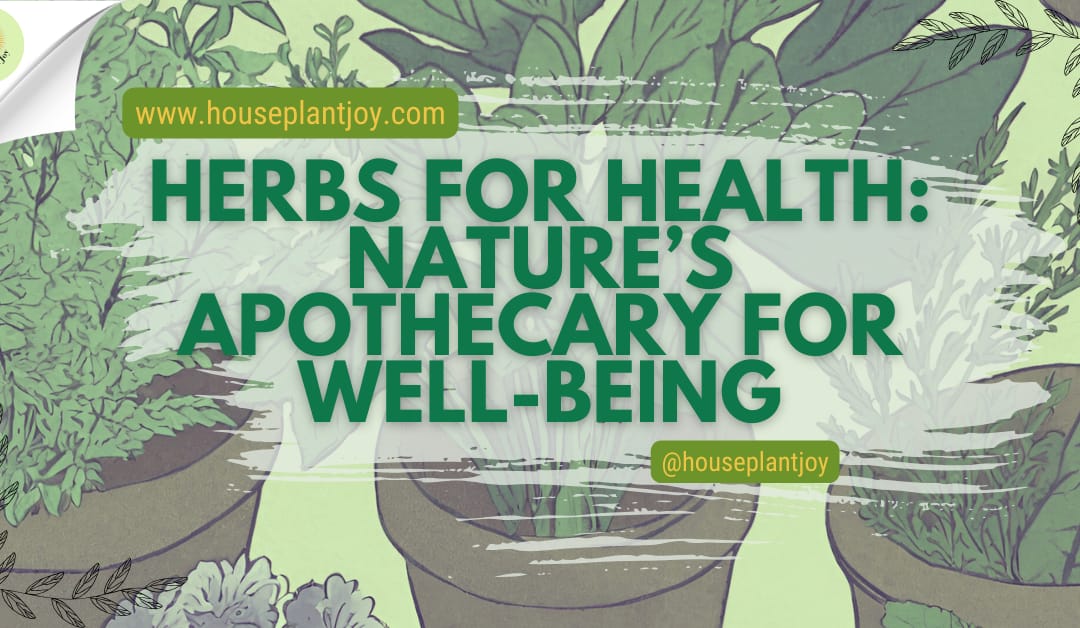Vegan Globetrotter is supported by our audience. When you purchase through one of our links, we may earn a small affiliate commission. As an Amazon Associate I earn from qualifying purchases. Your cost is not affected.
==================
In a world increasingly turning back to nature for solutions to modern health challenges, the timeless wisdom of herbal medicine shines brightly. From ancient civilizations to contemporary wellness enthusiasts, the use of herbs and spices for promoting well-being has stood the test of time.
This article delves into the rich tapestry of herbal remedies, exploring their historical significance, modern applications, and integration into everyday health routines. Join us on a journey through the lush landscapes of botanical medicine, where centuries-old traditions meet cutting-edge research to offer a holistic approach to vitality and longevity. Discover how herbs and spices can help control blood sugar, manage blood pressure, and even potentially mitigate conditions like Alzheimer’s disease.

Throughout history, the the good things about herbs and benefits of spices in food played a pivotal role in health and wellness, prized for their therapeutic properties as well as their culinary uses. From the mint used to soothe a troubled stomach to the lavender that calms a restless mind, these natural wonders have demonstrated their efficacy time and again. Modern research continues to explore the depths of herbal medicine, attempting to unlock and understand the complex compounds within that can promote health and alleviate illness. Discoveries in this field have led to insights on how certain herbs and spices can help control blood sugar levels and blood pressure, potentially contributing to the management of conditions such as Alzheimer’s disease.

While their use dates back millennia, today herbs remain a cornerstone in both traditional and alternative medicine practices. With the rise of holistic approaches to health, the integration of herbs such as turmeric, famous for its anti-inflammatory properties, and cinnamon, known to help regulate blood sugar levels, is becoming increasingly common. Consumers are becoming more proactive in not only seeking remedies for ailments but also in preventing them, and herbs are often at the forefront of these self-care strategies.

Incorporation of herbs into diets and lifestyles for their potential health benefits requires knowledge and discernment. It is important to understand which herbs are best suited for specific needs, ensuring they complement existing health regimens without causing adverse effects. With herbs being so accessible, from supplements to teas, the emphasis on educating oneself on their safe application is more important than ever.
Key Takeaways
- Herbs have traditional and modern uses for health, backed by both historical and contemporary research.
- Integrating herbs into one’s diet can promote well-being, but should be tailored to individual health needs.
- Safe use of herbs entails understanding their properties and potential interactions with other health practices.

The Basics of Herbal Medicine
Herbal medicine is the practice of using plants and plant extracts to support health and treat various health conditions. Herbalists use different parts of plants, such as flowers, leaves, bark, seeds, and roots, in various forms — teas, tinctures, powders, capsules, or ointments.
Safety and Efficacy
For many, the allure of herbal medicine lies in its historical use and perceived gentleness, but it is vital to approach it with an informed mindset. Just like conventional medicine, herbal treatments may carry potential side effects and interact with other medications. For instance, Aloe is a traditional Chinese medicine that may slow blood clotting. It’s imperative to consult with healthcare professionals before starting any herbal regimen.
Quality Control and Dosage
Quality can vary significantly between herbal products. Ensuring the use of reputable sources and standardized extracts can help in achieving more predictable therapeutic outcomes. Dosage is equally as important as the choice of herb; both insufficient and excessive amounts can impede the desired effects.
Common Herbs and Their Uses:
- Chamomile: Often used for its calming effects and may help with sleep and digestion.
- Echinacea: Sought for its potential immune-boosting properties.
- Garlic: Valued for cardiovascular benefits and antimicrobial activity.
- Ginger: Renowned for anti-nausea properties and digestive aid.
Using Healing Herbs with Medicinal Benefits, individuals seek remedies for ailments ranging from common colds to chronic conditions. The prudent use of herbal medicine requires an understanding of the herbs, attentive self-monitoring, and collaboration with healthcare providers.
Common Herbs and Their Impressive Health Benefits
Herbs have been recognized for their medicinal properties for thousands of years. Each plant offers unique benefits; some are particularly well-suited for addressing specific health concerns. Stinging nettle, for instance, helps to suppress allergic responses. Chamomile has antimicrobial properties too. Hence, many have health promoting compounds.

Chamomile for Relaxation
Chamomile is renowned for its gentle sedative effects, making it a popular tea choice before bedtime. Studies suggest that chamomile tea may help reduce stress and improve sleep quality due to its content of apigenin, a bioactive compound that can bind to certain receptors in the brain. It also has alpha bisabolol which antimicrobial characteristics that can boost the immune system. Still, because of its effect on brain function, it may help lower blood pressure.
Ginger for Digestion
Ginger is a potent herb used to alleviate various digestive issues. It can help ease nausea and vomiting, and it promotes the smooth passage of food and waste through the digestive tract. The active components like gingerol provide powerful anti-inflammatory and antioxidant effects.

Turmeric for Inflammation
Turmeric contains curcumin, a substance with powerful anti-inflammatory and antioxidant properties. Regular consumption of turmeric can help reduce inflammation, potentially benefiting conditions like arthritis, and may also aid in wound healing. Since it helps relax the blood vessels, it also aids in blood pressure improvement. Yet, of course, these are only the few health benefits of the said herb.

Garlic for Immune Support
One of the herbs and spices, it’s widely recognized to have many health benefits. Garlic has been used to support the immune system and combat common colds and other infections. When crushed or chopped, the key compound allicin offers notable antiviral and antibacterial properties, potentially reducing the severity of symptoms and duration of illnesses. Some people combine them with other spices and herbs, like chili pepper, to improve brain function or have an anti inflammatory effect.
Herbal Remedies for Common Ailments
Herbal remedies have long been used to address various common health issues, including promoting brain function. Due to their health benefits, these treatments have gained appreciation throughout the years. For instance, people discovered that spicy foods have strong anti inflammatory properties. Further, capsaicin from cayenne pepper or spicy foods enhances brain and memory function. of course, many research studies suggest that other herbs and spices also have numerous health benefits.
This section explores specific herbs that can offer relief for headaches, colds, depression, and skin health concerns.
Peppermint for Headaches
Peppermint oil is often applied topically to the temples to help ease tension headaches and promote brain function. The menthol within peppermint acts as a muscle relaxant and pain reliever.
Echinacea for Colds
It is widely recognized for its potential in shortening the duration of the common cold and reducing symptoms. Its supplements can come in a variety of forms, including tablets, teas, and tinctures.

St. John’s Wort for Depression
Research suggests St. John’s Wort is a herbal remedy that some people use for depression. It’s thought to have a positive effect on mood, but should be taken with caution, as it can interact with other medications. Still, because it helps with feeling down, it may contribute to preventing heart disease and other chronic diseases.

Aloe Vera for Skin Health
For external skin conditions such as sunburns or minor cuts, Aloe Vera can be applied directly to the affected area. It has cooling properties and compounds that support the healing process.
Incorporating Herbs into Your Diet
Incorporating herbs into one’s diet can offer a variety of flavors and potential health benefits, including regulating blood sugar levels and harnessing the therapeutic properties of herbs and spices. Because of their low caloric values, they can also help with weight management and deal with upset stomach from hunger.
This section explores practical ways to integrate herbs through cooking, teas, and supplements.
Cooking with Herbs
When cooking with herbs, they can transform mundane meals into culinary delights with their flavor profiles. As or together with salad dressings, they can make meals scrumptious. Fresh or dried herbs like basil, oregano, and thyme are staples in creating savory dishes. Fresh herbs are best added towards the end of cooking to preserve their flavor and nutritional value, while dried herbs are added earlier to allow their flavors to infuse the dish. Hence, you enjoy eating and enjoy anti inflammatory effects at the same time.
For instance, adding a handful of chopped parsley can enhance the flavor of soups and stews. To incorporate herbs like turmeric into your meals, consider blending them into marinades or sauces for an anti-inflammatory boost.
Herbal Teas
Herbal teas offer a simple way to consume beneficial compounds found in various herbs. Different herbs can be steeped to create soothing teas, such as chamomile for relaxation or peppermint for digestive health.
- Ginger tea can be made by simmering fresh ginger root in water, offering potential nausea relief.
- For immune support, one might choose a tea containing echinacea.

Supplements and Capsules
For those seeking the benefits of herbs without altering the taste of their food, supplements and capsules provide a convenient alternative. Supplements can offer a concentrated form of active herbal compounds.
Ashwagandha capsules, for example, are often used for stress relief, while maca root supplements may help to balance hormones. It is crucial to purchase these from reputable sources to ensure quality and efficacy. Always consult with a healthcare provider before starting any new supplement regimen.
Herbs and Longevity
Herbal remedies have been used for centuries to promote longevity and overall well-being. The following herbs have shown potential in supporting a healthier, longer life through various mechanisms such as reducing stress, improving cognitive function, and enhancing vitality.

Ginseng
Panax ginseng, often referred to simply as ginseng, is one of the most highly regarded herbs for bolstering vitality and longevity. Studies suggest that ginseng can improve mental clarity and physical endurance, which are crucial for healthy aging. It contains active compounds known as ginsenosides, which are thought to be responsible for its energy-boosting properties. Still, after ingestion, it helps with abdominal pain and thus may give relief to irritable bowel syndrome.
Ginkgo Biloba
Ginkgo biloba is renowned for its ability to enhance cognitive function, especially in the aging population. Its leaves are rich in flavonoids and terpenoids, antioxidants that are beneficial for brain health and blood circulation. Consistent ginkgo biloba supplementation is associated with improved memory and reduced risk of cognitive decline.
Ashwagandha
Ashwagandha, or Withania somnifera, is an adaptogenic herb known to reduce stress and promote longevity. By helping the body manage stress and fight free radicals, ashwagandha supports overall cellular health. Its use has also been linked to improvements in energy levels, mental acuity, and physical strength, contributing to a longer and healthier life.
Herbs for Health: Embracing Nature’s Path to Well-Being

In conclusion, the rich history and modern research behind herbal medicine highlight its profound potential for promoting well-being and addressing various health concerns. As we continue to explore the benefits of herbs and spices, it’s essential to approach their use with knowledge and caution, ensuring safety and efficacy. Whether integrating herbs into our diets, seeking remedies for common ailments, or exploring herbal supplements, let’s embark on this journey towards holistic health with informed choices.
Ready to unlock nature’s pharmacy for your well-being? Start exploring herbal remedies today!
Frequently Asked Questions
Herbs have been used for centuries for their medicinal properties. This section addresses common inquiries regarding their benefits and applications in daily health routines.
What are the proven benefits of incorporating herbs into a daily health regimen?
Incorporating herbs such as turmeric and ginger into a daily health regimen can reduce inflammation and support overall well-being. Clinical studies have found that certain herbs can help manage health conditions and support bodily functions.
Which herbs are commonly recommended for boosting immunity?
Herbs like echinacea, garlic, and elderberry are commonly recommended for their immune-boosting properties. They have been shown to enhance the body’s resistance to illness.
Can certain herbs be used to improve digestive health, and if so, which ones?
Peppermint and ginger are two herbs frequently recommended for improving digestive health. They aid in reducing gastrointestinal discomfort and improving digestive function.
What are the go-to herbs for enhancing mental focus and concentration?
Herbs like ginkgo biloba and gotu kola have been traditionally used to enhance mental focus and concentration. Research indicates that these herbs may support cognitive function and brain health.
How can herbs contribute to heart health, and which have the strongest evidence?
Hawthorn and garlic are among the herbs with the strongest evidence for contributing to heart health. They have been associated with improvements in cardiovascular function and cholesterol levels.





Don't miss out
when new recipes and information are added!
Join our newsletter for free recipes,
healthy living inspiration, and special offers
You have Successfully Subscribed!